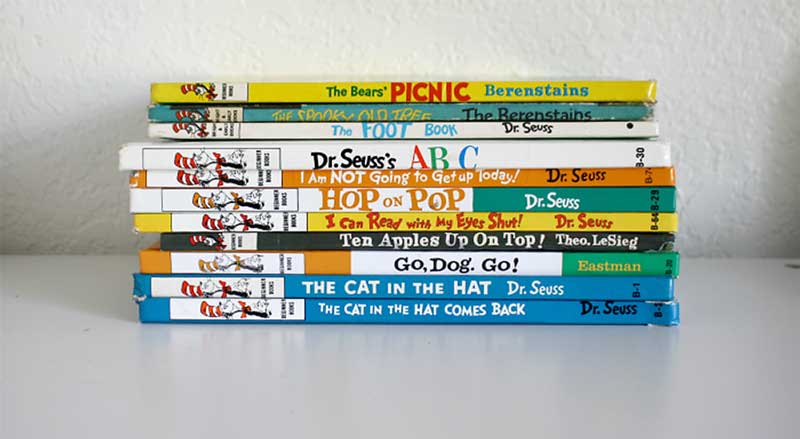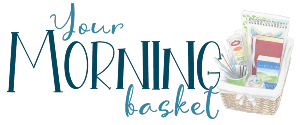
Reading. It’s such a huge focus whenever anything related to education comes up, but is it even something that should be pushed in the early years of schooling or something you should worry about if your child isn’t following along with the expectations of his public-school peers?
First, it’s important to remember schools have created arbitrary timelines for reading – especially with the addition of Common Core standards, where college-readiness skills were determined and then everything needed to get there was backtracked through the grades, regardless of whether or not those expectations were developmentally appropriate.
Never mind the fact that children in Finland begin reading instruction at age seven – two years later than in the U.S. – and yet they still surpass not only the U.S., but other European and even Asian countries with top overall scores in the world in reading, science, and math…
The Finns trust in the knowledge that other countries obviously ignore. The areas of the brain that are involved in language and reading aren’t fully connected until age seven or eight. Ignoring this fact means children’s brains will find other, less-efficient ways to make connections, creating odd pathways that can lead to all sorts of processing deficits later on.
No research documents long-term benefits of learning to read earlier. There’s simply no empirical evidence that learning to read early gives children an advantage!
So why is it that reading is touted as the end-all, be-all? It’s like our society has become a cult of reading-worshippers who feel that decoding the written word matters more than any other skill or bit of knowledge.
I don’t have a problem with reading – I mean, at our house, we’re pretty much all reading every spare moment we find, but that doesn’t mean it’s something every child should be expected to do on an identical timeline!
Are all children expected to walk at the same time? No. Be potty-trained at the same time? No.
If 4-yr-old Susie can already play the piano, do you feel bad because your little Janie can’t? No.
That’s because we understand that kids have different abilities and learn things at different rates.
That goes for reading, as well.
Homeschooling can be a great solution to this struggle, but because life doesn’t happen in a vacuum and most people are still used to the traditional school model, even homeschoolers who are later readers can feel inadequate and behind.
To help you feel a bit more relaxed if you find yourself in these shoes, consider the following:
- Do college applications ask you to list what age you were when you learned to read, ride a bike, or anything else? No. Unless a child has a serious problem (with eyesight, for example, or with processing), then all children will learn to read and even late readers will catch right up to their peers in no time flat.
- But how do I know whether to worry about a problem or not? If your child is reaching about the end of first grade (think 7 ½) and still struggling with the most basic reading concepts (this doesn’t mean not reading, this means no interest or progress taking place), then it might be time to start thinking about checking into things further.
- Does early training really get you anywhere? There’s a classic child development study that took a pair of toddler twins not yet able to climb the stairs. For the study, one twin was given daily opportunity and encouragement to climb stairs and the other twin none. After six weeks, the “trained” twin could climb stairs and the “untrained” twin couldn’t. However, within just one week of being given the chance to climb stairs, the untrained twin caught right up with the trained twin’s ability.
- This happened to me, personally, as I’d always wanted to skate, but my family couldn’t afford it. When I was finally given the opportunity to learn, people said I’d missed my chance to become competitive since I’d started so late. However, I caught right up to my peers, passing all the skating test levels in just two summers that it had taken the others ten years to pass! Instead of wasting all that money throughout all those years of slow advancement, I took advantage of being developmentally ready and combined it with my strong desire to make the most out of my competitive career!
- As another example, consider learning to ride a bike. Say you want your child to be able to ride a bike by the time they’re six. Well, five would be better, right, and there’s that neighbor kid who could do it by four. So, in order to achieve this goal (or beat it and have a superstar child), you stick your two-year-old on a bike each day and make her practice, skipping all the scoot toys and trikes and other developmentally appropriate playthings in pursuit of reaching this misguided goal. Most parents would agree that this is ridiculous – it probably creates a daily struggle between parent and child and is no fun for anyone. Plus, when your child heads off on his bike with his friends as a ten-year-old, can anyone tell who learned to ride a bike the earliest?
Kids will do what they’re ready to do.
So relax and follow their lead as much as you can. There will absolutely come a time with your child is ready to read – when he or she wants to learn to read – and you can take that cue from your little one as he or she follows these stages:
Stage 1: Interest in pre-reading skills
(Can begin as early as ages 4-5, but can also continue to be worked on through age 7)
- Interest in reading: Does your child ask you to read stories to him and then willingly participate in the reading? Does he try to “read” books himself? Does he ask what things say?
- Listening comprehension: Does your child ask questions about the story while you’re reading to her? Can she make predictions based on the front cover? Can she answer simple questions about what you’ve read? Can she retell a story after hearing it?
- Book awareness: Does your child know the proper way to hold a book to read it? Can he identify the front and back covers? Find the title? Show where to begin reading or how to turn the pages?
- Print awareness: Can your child point out where the first and last words are on a page? Show which direction to read the words? Where to go at the end of a line? Find a capital, lower case letter and period? Can she count the number of words in a sentence?
- Rhyming words: If you say two words, can your child tell you whether they rhyme or not? If you give your child a word, is she able to come up with a word that rhymes with it?
- Syllables: Can your child count how many syllables are in a word? Blend syllables together to form words?
- Beginning sounds: Can your child tell what the beginning sound is for a variety of words? Tell you another word that starts with the same sound?
- Ending sounds: Can your child tell what the ending sound is for a variety of words?
- Blending sounds: If you say each sound in a word (c-a-t) very slowly, can your child tell you what the word is?
- Letter names and sounds: When presented with a mixed-up list of upper and lower-case letters, can your child identify most of the letters correctly? Can she tell you the sound each letter makes?
Stage 2: Learning to read
(Occurs from ages 6-10)
- This stage might take some children longer than others and that’s okay.
- They should be able to understand that letters represent sounds and begin to read SIMPLE books by mid-first grade.
- Often, an initial love of reading can be squashed in this stage due to too much pressure and practice. It’s important to provide plenty of opportunities for the child to interact with books in a positive way, even if that means using slightly unconventional means (graphic novels, magazines, audiobooks, read alouds, etc.)
- Different children respond to different types of reading instruction. There’s certainly no shortage of reading plans and curriculums out there for homeschoolers, but if you’re looking for a relaxed, free way to teach reading to your child, check out my Homeschool Reading That’s Easy, Effective and Economical post here.
Stage 3: Reading to learn
(begins between ages 11-13)
- By now, readers have become fluent in their reading skills and are able to use reading as a vehicle for further learning and development.
- They not only feel comfortable with decoding but in comprehending what they read, too.
At this point, you now have groups of teenagers hanging around your house. They’re probably also spending quite a bit of time reading on their phones – do you think anyone knows or cares who read first?
I didn’t think so.
But you know what? They were all, at some point, Ready to Read!
Do you have young ones at home and are already feeling the pressure and anxiety to get them learning to read? I’d love to hear! Either leave a comment below or email me at lisahealy (at) outlook (dot) com.
- 5 Easy Ways to Incorporate Preschool Math into Your Homeschool Day - September 29, 2022
- Preschool At Home: Calming Your Fears - August 31, 2022
- Homeschooling Your Preschooler: Social-Emotional Learning Guide - July 25, 2022



